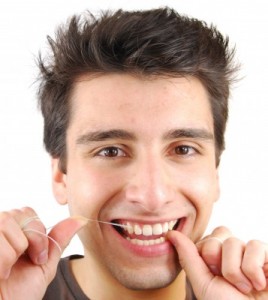 Flossing is an essential and important step that we tend to neglect in our oral health care routine. For some, this habit is uncommon and many would think that brushing is sufficient. It can be viewed as a bothersome and niggling task to use dental floss or floss sticks. Furthermore, if one isn’t careful and slides the floss into the gums, one may experience bleeding gums. Still, practice makes perfect – once you get the hang of it, flossing will be so much easier and pleasant.
Flossing is an essential and important step that we tend to neglect in our oral health care routine. For some, this habit is uncommon and many would think that brushing is sufficient. It can be viewed as a bothersome and niggling task to use dental floss or floss sticks. Furthermore, if one isn’t careful and slides the floss into the gums, one may experience bleeding gums. Still, practice makes perfect – once you get the hang of it, flossing will be so much easier and pleasant.
Is flossing important and should I floss?
The benefits of flossing certainly surpass the drawbacks of not flossing. Why is this so? Plaque not only accumulates on tooth surfaces, but also in-between the teeth. Teeth brushing only cleans the surfaces of the tooth (3 of the tooth surfaces) but not those hard-to-reach areas (the spaces between 2 teeth). That is why it is common to find cavities at the hard-to-reach tooth surfaces. Since teeth brushing will take care of removing the plaque on the tooth surfaces, flossing is the only way to access and clean the gaps between the teeth.
More advantages of flossing include:
- Besides getting rid of that pesky piece of vegetable stuck between your teeth, regular flossing will prevent the accumulation of plaque. When plaque is left unattended, it becomes calculus. The build-up of calculus can lead to gingivitis (red, swollen gums, i.e. the initial stage of periodontal (gum) disease).
- Flossing is cheap and an effective way in promoting good dental hygiene and overall oral health.
- Flossing eliminates bad breath and removes bacteria between the teeth.
- When incorporated into a good oral hygiene regime, flossing prevents periodontal (gum) disease and cavities.
Now that you know the benefits of dental flossing, pay a little more attention to your daily oral care.
Flossing is only effective if it is done in a correct manner. During your next visit to the dentist, you may want to request for the dentist to show you how flossing should be done effectively. Dr Helena Lee, dental specialist in Periodontics (gum treatment) also shared the correct method of flossing in February 2014’s issue of Ezyhealth magazine. You can read the full article here.
Even though it is encouraged to floss and brush after each meal, some may not have the luxury of time to do so. At the very least, you can floss your teeth at least once a day, after your last meal of the day. In long run, flossing will become a habit and you will appreciate the benefits flossing brings you and to your overall oral health.
So let’s start today to include flossing in your oral care routine and floss your way to a beautiful smile!
Please subscribe to our blog for more interesting dental related topics or ‘Like’ our Facebook page for the latest updates on our team activities.





